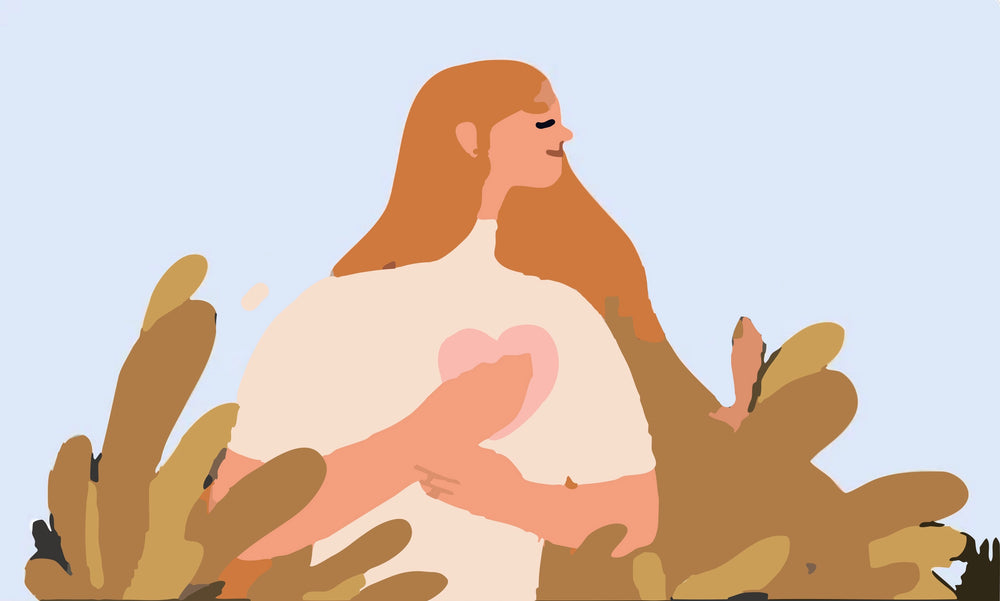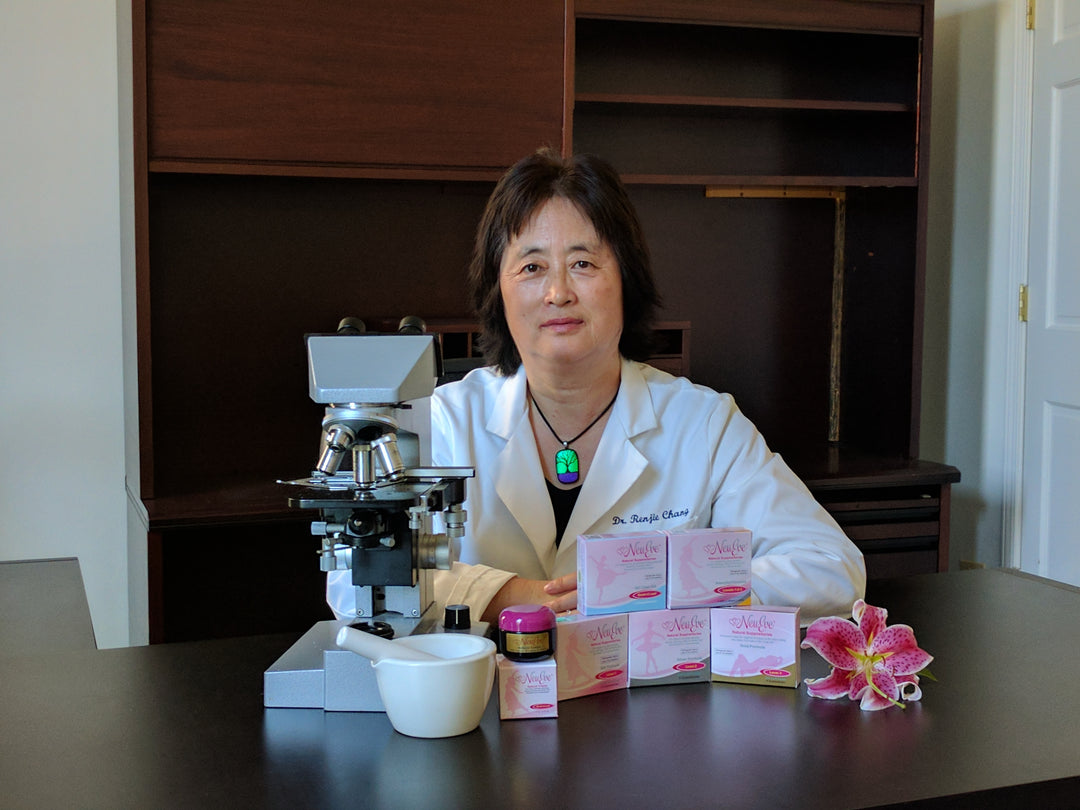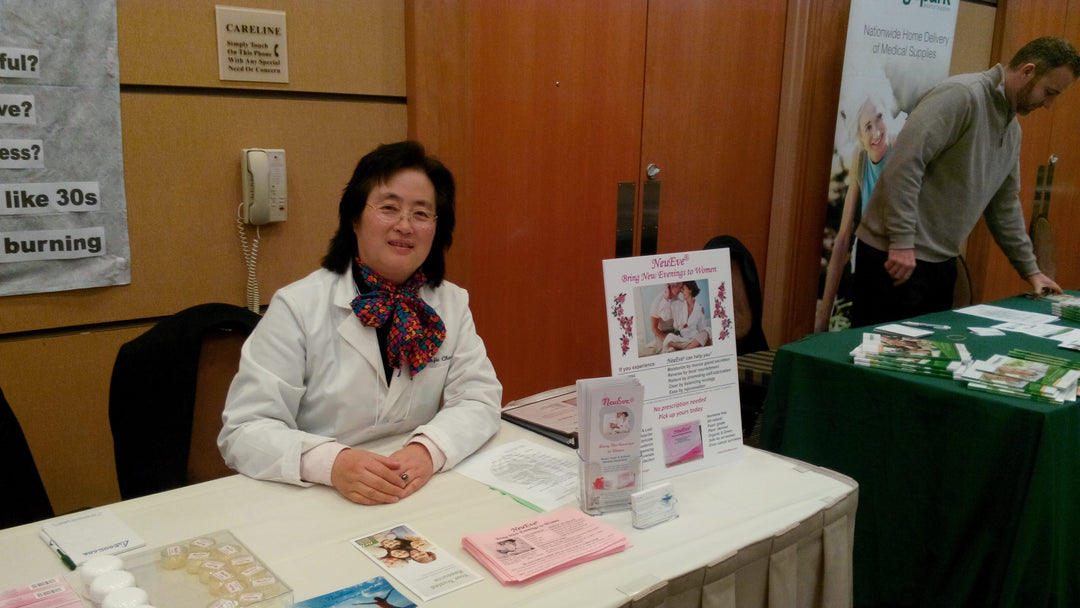Menopause: The Natural History of a Life-Changing Transition
An evolutionary perspective on a virtually unique life stage only seen in humans: menopause.
By Dr. Robert Martin and Dr. Lu Yao

When Samantha from Sex in the City was entering the United Arab Emirates, her luggage was searched for drugs, which can carry the death penalty. Her bags filled with creams and vitamins were confiscated. But Samantha was still very worried because of her belief that the cosmetics control her hormones and hold off menopause, the abrupt end to fertility commonly known as change of life. When Carrie told her she would only be a week without them, Samantha replied, “Tell that to the beard I will be growing”.
Overview of Human Menopause
Around the age of 50, women worldwide undergo this challenging mid-life crisis with a slew of physical changes that may be hard to handle. Symptoms often include, but are not limited to, weight gain, hot flashes, bladder control problems, mood swings, and natural treatment for vaginal dryness making it irritable and painful to have sex. So why do women undergo these physical ordeals while aging?
The Decline of Eggs over Time
A simple interpretation of human menopause is that a woman’s ovaries run out of eggs. At birth, a girl has about a million egg starter cells in each ovary. This is her lifetime supply. Beginning with puberty, eggs are used up with every menstrual cycle until only about a thousand are left. That threshold level marks the beginning of menopause. So women who start menstruating (menarche) early in life might be expected to enter menopause early. However, studies indicate that the age at menarche has no connection whatsoever with the age of menopause.
It has been claimed that abrupt fertility loss in middle-aged women is just an extreme form of fertility decline shown by certain nonhuman primates, such as macaques and chimpanzees, during the last few years of life. However, fertility loss in women commonly occurs long before the likely age of death. Nowadays, women in industrialized countries have an average life expectancy of at least 80 years, 30 of which are post-menopausal. Indeed, the maximum length of the human lifespan is around 125 years, so a woman who lives close to that limit will have been infertile twice as long as she was fertile!
Human Menopause vs. Primate Menopause
In fact, there is a major difference in the depletion of egg starter cells between women and female nonhuman primates. In a nonhuman primate, such as our closest zoological relative the chimpanzee, reduction in numbers of egg starter cells is a uniform process throughout life. In women, by contrast, the loss of starter cells accelerates with age. Calculations indicate that accelerated loss begins at an age of about 38 years. Apparently, natural selection has increased the rate of loss so that a woman becomes infertile a few decades earlier than would otherwise be the case.
The "Grandmother Hypothesis"
As a highly unusual feature, human menopause has understandably intrigued evolutionary biologists. One widely favoured explanation for the evolution of human menopause is the “grandmother hypothesis”. Simply put, older women’s genes are spread more effectively by promoting the survival of their descendants, notably grandchildren, through altruistic activities. Various studies have yielded evidence that the presence of grandmothers is in fact associated with enhanced survival of grandchildren. However, such findings are based on correlations, and we must remember that correlation is not the same thing as causation. It is surely true that the presence of post-menopausal grandmothers can benefit subsequent generations, but it remains possible that menopause actually evolved for other reasons.
Fundamental Challenges of an Evolutionary Basis for Human Menopause
It is often assumed that modern survival potential has remained unchanged since our species emerged over 300,000 years ago, or at least for some considerable part of that period. Survival of significant numbers of women beyond the age of 50 throughout an extended geological period (probably at least 100,000 years) would have been essential for natural selection to drive the evolution of human menopause. Some authors have concluded that survival to advanced age was quite likely in prehistorical times, but others have inferred that the likelihood of survival beyond the age of 50 was very low until relatively recently. In a nutshell, human menopause may be an artifact of modern medicine and easier lives. As the jury is still out on this, a major question-mark hangs over all discussions of an evolutionary basis for menopause.
Looking for Clues in Menopause of Killer Whales
Fortunately, although genuine menopause is unique to humans among primates, a few whale species do show something similar. A lengthy infertile phase resembling human menopause has been reported for killer whales, short-finned pilot whales and possibly sperm whales. In these species, females lose fertility at about 40 years of age, but commonly survive for several decades more.
Killer whales live in groups organized around the females. Research indicates that the presence of post-reproductive mothers in a social group is correlated with enhanced survival of male, but not female, offspring. Post-menopausal females lead collective movements through salmon foraging grounds. Such leadership is especially evident in challenging years when salmon are scarce. It emerged that females are more likely to lead sons than daughters. In short, transfer of ecological knowledge by post-reproductive females may enhance the survival of kin.
But here’s the thing: Female killer whales generally stop breeding when about 40 years old but can survive into their 90s. By contrast, males rarely survive beyond the age of 50. So humans are radically different in that lifespans of men are little different from those of women. Why the difference between killer whales and humans? At least the evidence from killer whales does raise the intriguing question as to why men live beyond 50.
Average Lifespan of Humans vs. Killer Whales
| Female | Male | |
| Human | 82 years | 77 years |
| Killer Whale | ~90 years | ~40 years |
More Questions to Explore
For now, the origin of human menopause remains shrouded in mystery. One possibility that should really be explored is whether the genetic benefits of investing in children and grandchildren outweigh the benefits of starting another pregnancy with a genetically dubious egg that has steadily accumulated mutations. One immediate objection to this would be that sperm cells in men also accumulate mutations (in fact four times as fast as eggs). So why do men not have menopause as well? Here, the “randy grandfather hypothesis” comes to the rescue. A woman’s investment in pregnancy is hugely greater than a man’s contribution to conception. So it may be beneficial for men to keep their options open at little cost, maybe with a prospect of impregnating a younger woman.
About the Authors:
Robert Martin, Ph.D., an international expert on primate evolution and human origins, is Emeritus Curator of Biological Anthropology at the Field Museum in Chicago, a member of the Committee on Evolutionary Biology at the University of Chicago, and Academic Guest at the Institute of Evolutionary Medicine at the University of Zürich (Switzerland). With over 300 published items to his credit, he is the author of the widely used textbook Primate Origins and Evolution and of How We Do It: The Evolution and Future of Human Reproduction, written for a general readership.
Lu Yao, Ph.D., is an evolutionary biologist working on ancient DNA, morphology and biogeography in primates. She gained her doctorate degree in biological sciences at the University of Chicago and is currently a Gerstner Postdoctoral Fellow at the American Museum of Natural History in New York City.



















Leave a comment